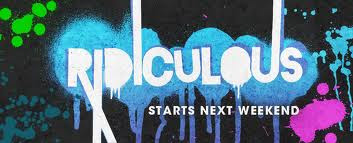Ridiculism
Somewhere in the mists of my undergraduate learning is a remnant of a memory of a teaching about laughter being no laughing matter. Seriously, that's all I've got.
Maybe it's Rousseau in his letter on the theatre or somewhere in Hobbes or maybe it was from Bloom's book or in a lecture from Craig or Carmichael. I can't recall it. And we know what we can recall, said Ong.
Whatever it is that is left floats in and out as I get ready to form an actual research question for my final essay project toward a master's degree in communications and technology. That essay will have something to do with laughter.
You will recall :) that I have spent the last few years circling around the Duckett Cookie Video artifact, trying to gain theoretical perspectives on its meaning, its impact, its lessons. Not yet in the form of a research question, my interest in that video text, which has attracted nearly 350,000 views, will, I feel, reflect my newfound perspectives but be informed by some of those older questions, like the meaning of laughter.
Because there was a lot of laughter, and different kinds of laughter, released by the Duckett video. And laughter is thought to be contagious and serve as a kind of positive feedback. The word association is automatic:
 Laughter. Contagious. Contagion. Something that is spread. Bacteria. Virus. Viral. Going viral. Social media. Sharing. Youtube. Sharing. Spreadable media. Pratt: we share what is tellable. Kubish: The ridiculous is what is tellable in today's media sphere. Jon Stewart. Anderson Cooper has a segment on his mainstream show called The Ridiculist. CBC asks Duckett if it isn't ridiculous that he's waving a cookie instead of answering a question. Duckett accuses the media of being ridiculous for scrumming him. It's a battle over what is ridiculous. Both sides share electronically. The premier provides witness to the power of the sharing by saying everyone in the province has seen the video. The laughter is preserved in the soundless Youtube comment forum by the use of LOL. What is shareable, we still share. The ridiculous is shared. Evaluations of the ridiculous are shared (Pratt, Labov), including media-added mashups. What has changed, or what we are experiencing is the power and speed of sharing and the visualization of sharing. The externalization of that visualization. It's like our memories have taken concrete shape in the form of computer monitors in front of us. (haha: which is why I don't have to remember the old way!)
Laughter. Contagious. Contagion. Something that is spread. Bacteria. Virus. Viral. Going viral. Social media. Sharing. Youtube. Sharing. Spreadable media. Pratt: we share what is tellable. Kubish: The ridiculous is what is tellable in today's media sphere. Jon Stewart. Anderson Cooper has a segment on his mainstream show called The Ridiculist. CBC asks Duckett if it isn't ridiculous that he's waving a cookie instead of answering a question. Duckett accuses the media of being ridiculous for scrumming him. It's a battle over what is ridiculous. Both sides share electronically. The premier provides witness to the power of the sharing by saying everyone in the province has seen the video. The laughter is preserved in the soundless Youtube comment forum by the use of LOL. What is shareable, we still share. The ridiculous is shared. Evaluations of the ridiculous are shared (Pratt, Labov), including media-added mashups. What has changed, or what we are experiencing is the power and speed of sharing and the visualization of sharing. The externalization of that visualization. It's like our memories have taken concrete shape in the form of computer monitors in front of us. (haha: which is why I don't have to remember the old way!)
Now, that doesn't exactly help with a research question, I know. But if I don't put it down, it is all, in the words of Ian Tyson, bound to go. (How do I remember that line?!)




Comments
Post a Comment